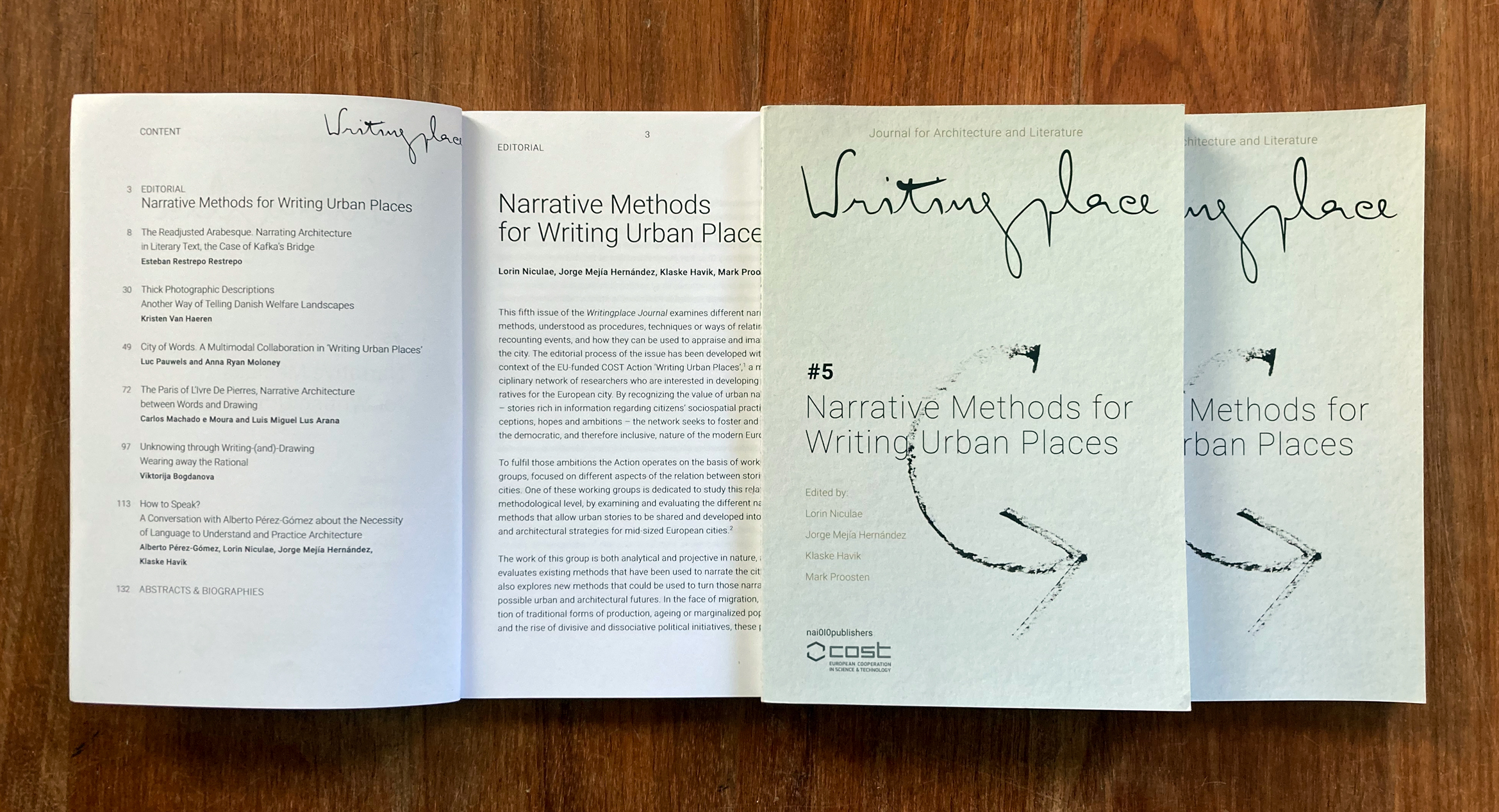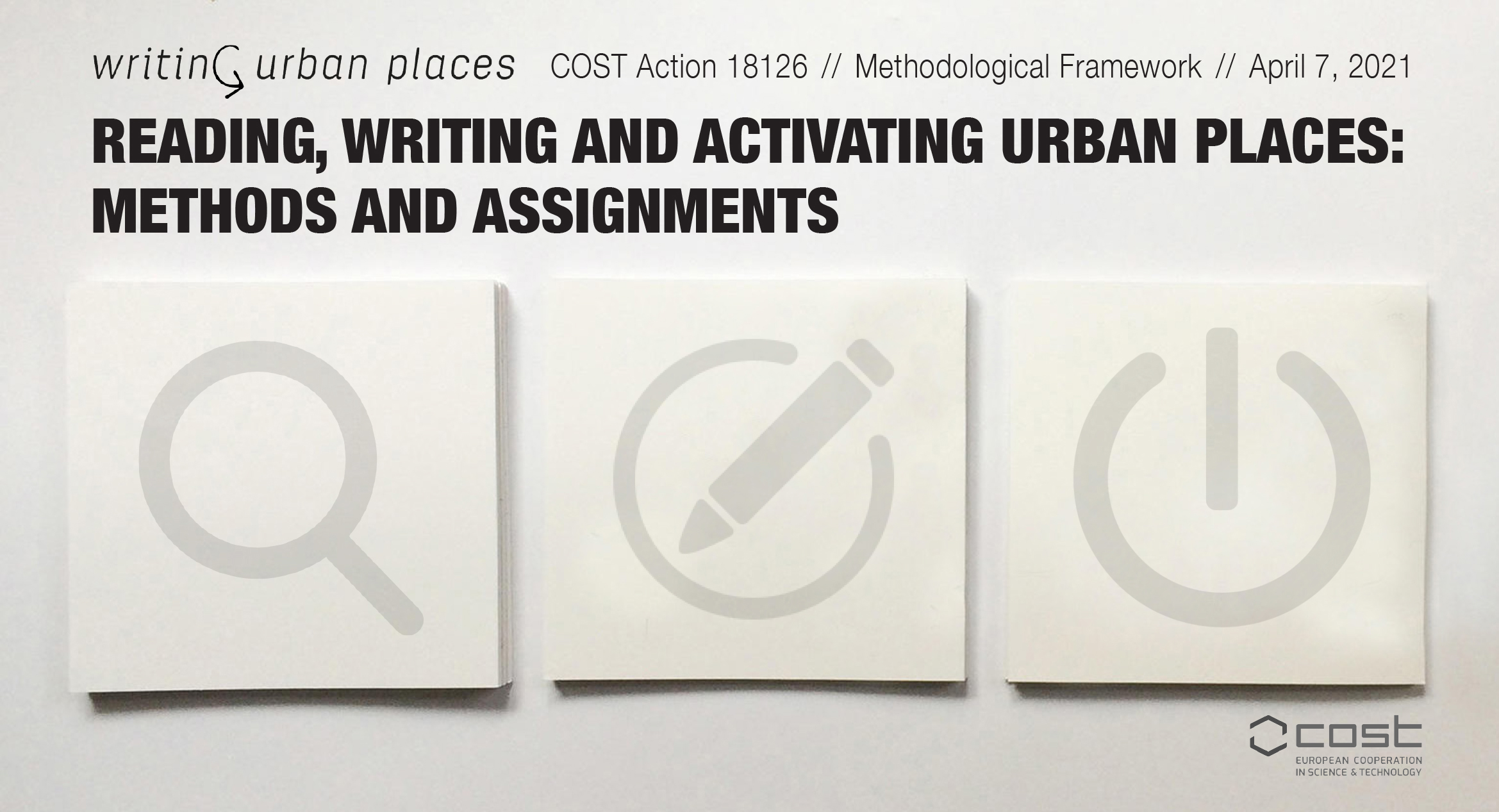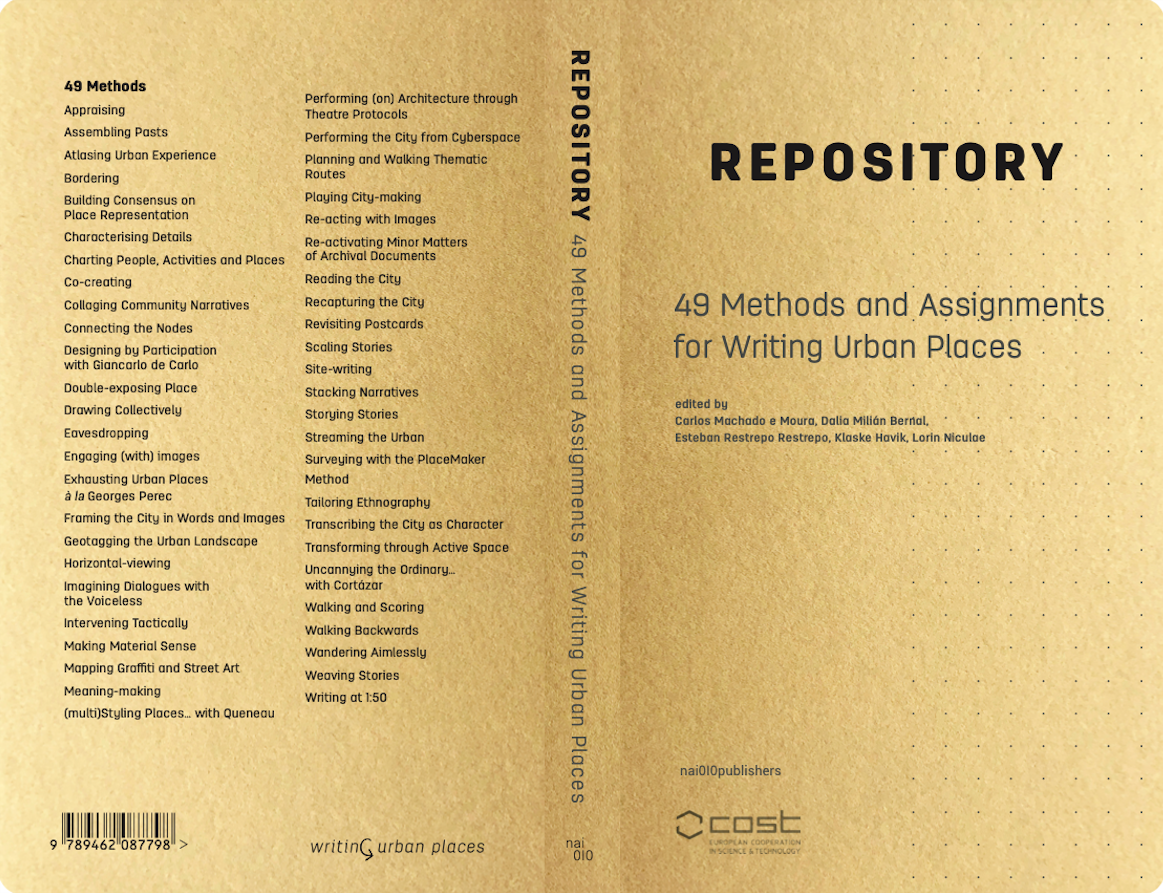Repository of Methods
About the Repository of Methods
The Repository of Methods (RoM) is an ongoing project that aims to gather a wide range of methods, approaches, procedures, and assignments from diverse disciplines employed to capture, explore, experience, engage with, analyse, understand, and make sense of mid-sized European cities. The outcome RoM is not a single comprehensive document, rather, it is a continuous and iterative collection of methods, approaches, and assignments submitted by different members of the Cost Action and presented in varied formats.
1. Fast and wild brainstorming of terms, ideas, and references
WG3 launched a digital platform to continuously collect diverse terms, ideas, and references related to methods and approaches to capture, explore, experience, engage with, analyse, understand, and make sense of urban places.
We encourage all Action members to visit the platform and share some terms, ideas, and references to writing urban places.
2. Writingplace #5 – Narrative Methods for Writing Urban Places

This fifth issue of the Writingplace Journal examines different narrative methods, understood as procedures, techniques or ways of relating or recounting events, and how they can be used to appraise and imagine the city. The editorial process of the issue has been developed within the context of the EU-funded COST Action ‘Writing Urban Places’, a multidisciplinary network of researchers who are interested in developing new narratives for the European city. By recognizing the value of urban narratives – stories rich in information regarding citizens’ socio-spatial practices, perceptions, hopes and ambitions – the network seeks to foster and preserve the democratic, and therefore inclusive, nature of the modern European city.
Edited by Lorin Niculae, Jorge Mejía Hernández, Klaske Havik, Mark Proosten.
Articles by Esteban Restrepo Restrepo, Kristen Van Haeren, Luc Pauwels and Anna Ryan Moloney, Carlos Machado e Moura and Luis Miguel Lus Arana, Viktorija Bogdanova, and an interview with Alberto Pérez Gómez.
3. Webinar – Reading, Writing, and Activating Urban Places: Methods and Assignments

The third in a series of across-network workshops organized within our COST network was led by Working group 3 (Methodological Framework) and took place on 7 April 2021.
WG3webinar_programme_final2Dow
For convenience each session has been divided into chapters, so it’s possible to access each of the individual speakers’ interventions directly within the recording.
4. Repository 49 Methods and Assignments for Writing Urban Places

Click here to view and download the Repository
This Repository is the result of over three years of intense collaboration of Working Group 3 of our COST Action Writing Urban Places. The repository gathers a series of methods and assignments born from a shared interest in urban narratives. What can narratives tell us about how communities relate to place? How can existing stories of place allow us to write new narratives for the city? How can we read the stories that are inscribed in streets, on walls, and in architectural details? How can archives unveil hidden stories of places and buildings, and of their makers and users? How can we write the city by using our senses?
This Repository can be seen as an invitation, encouraging scholars, students, and spatial practitioners to explore 49 methods, and, through clearly laid out assignments, take them out into the field. We want this Repository to be a practical tool, an open document, and a living device. In it, each method is described in a short text and is accompanied by an assignment. The assignments are a central element of this Repository, as they interpret, complete, or continue the methods themselves, but also encourage a constant dialogue between contributors and users, through a series of experiments and practices within the urban space. Each assignment is presented as a clear set of numbered instructions to guide the reader to explore and employ the method.
This Repository came to fruition thanks to an intense collective effort bringing together almost as many different voices as the set of methods it gathers. This Repository celebrates this proliferation, multiplicity and cohabitation of thoughts and visions and thus gathers a series of innovative and creative procedures deriving from different horizons in order to expose the diversity in
which the city might be grasped, told, and expressed and thereby also produced. It intends to stimulate new approaches in architecture, urban studies, and other fields of spatial development and to invite creative, often embodied, and sometimes playful engagements with the material and immaterial dimensions of urban places.
Many thanks to all contributors!
The editing team:
Carlos Machado e Moura, Dalia Milián Bernal, Esteban Restrepo Restrepo, Klaske Havik and Lorin Niculae.